Abstract
1 The methodology used in studies to assess the effects of drugs on car-driving performance is reviewed.
2 Clobazam 20 mg, diazepam 10 mg or placebo were administered daily for 3 d to 24 male students with a high neuroticism score (on the Cattell Personality Factors Questionnaire).
3 Car-driving performance was assessed on the second day in real traffic conditions; tests of attention and concentration and subjective assessments were made on the third day.
4 Diazepam 10 mg significantly impaired braking reaction time in comparison with clobazam 20 mg and placebo (P < 0.01). Subjects also reported feeling more `depressed' and lethargic after diazepam.
Full text
PDF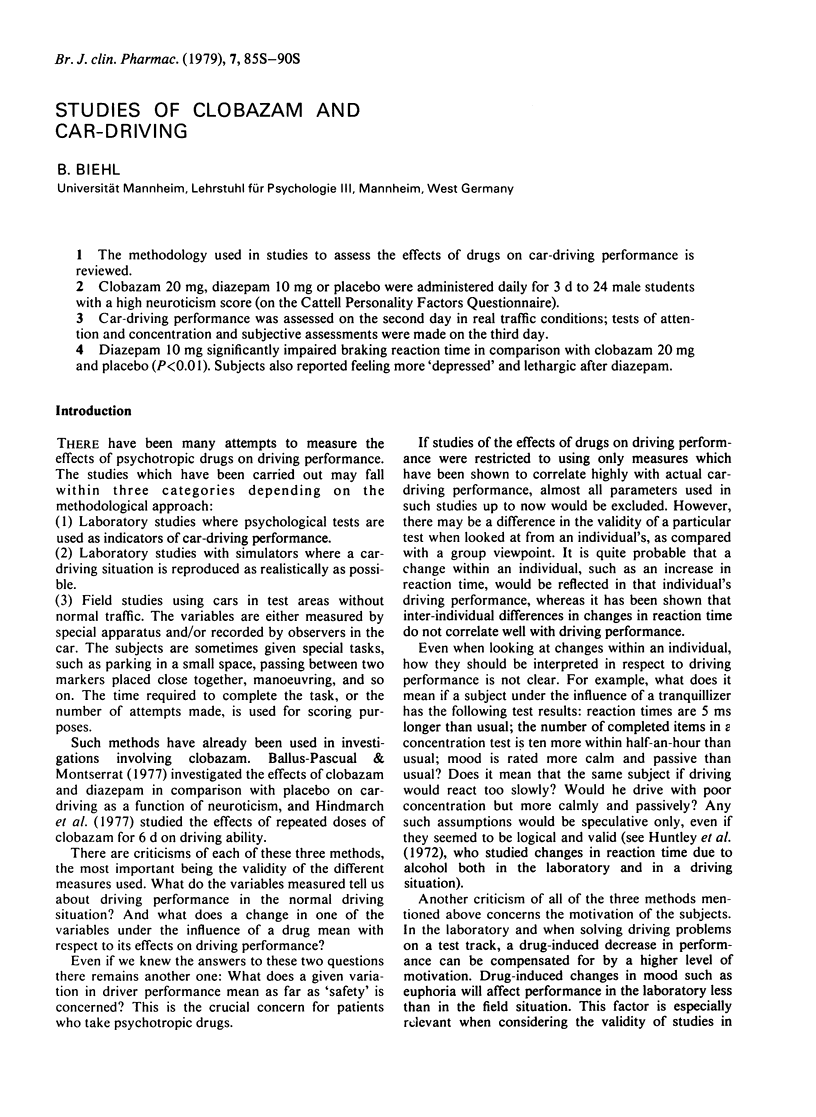
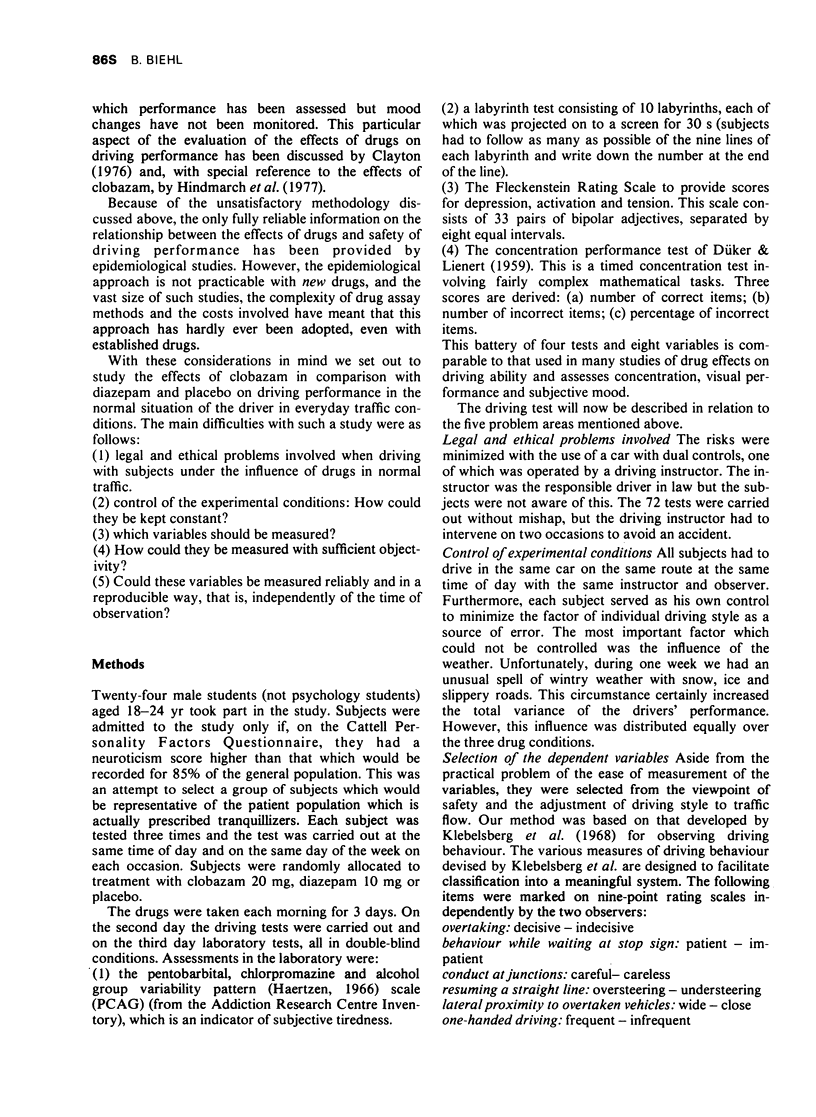
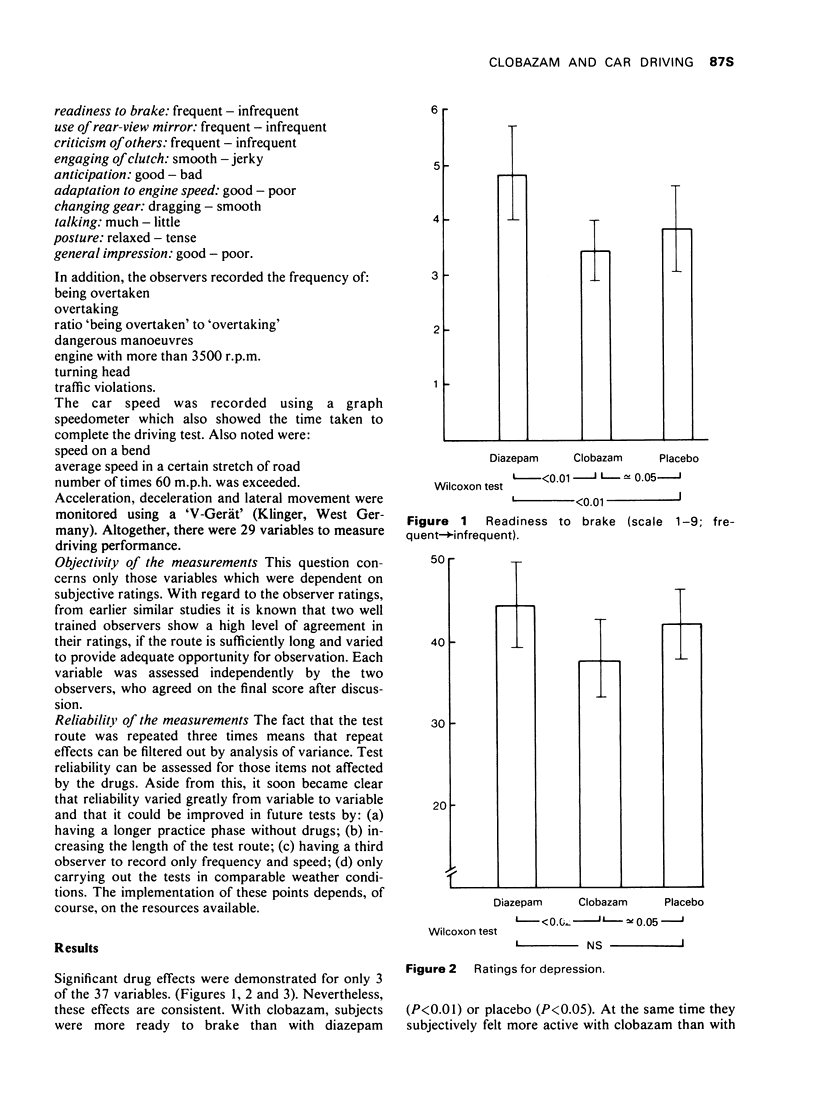
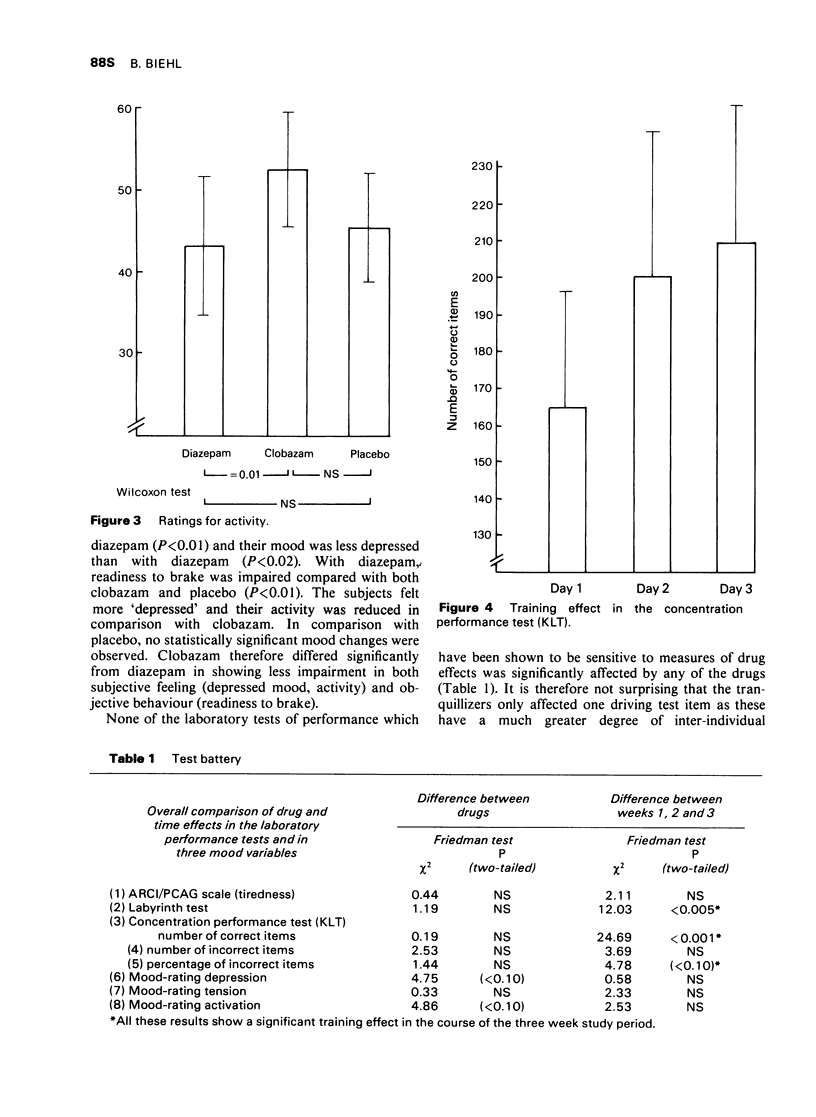
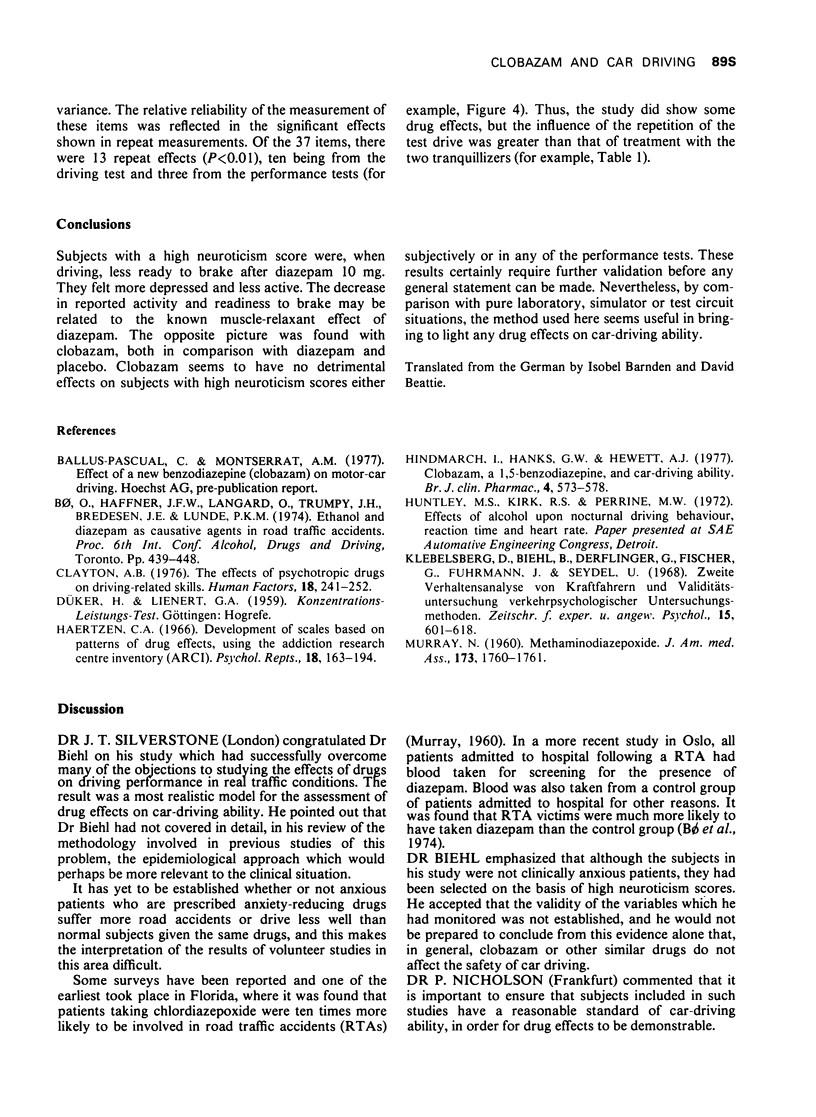
Selected References
These references are in PubMed. This may not be the complete list of references from this article.
- Clayton A. B. The effects of psychotropic drugs upon driving-related skills. Hum Factors. 1976 Jun;18(3):241–252. doi: 10.1177/001872087601800305. [DOI] [PubMed] [Google Scholar]
- Haertzen C. A. Development of scales based on patterns of drug effects, using the addiction Research Center Inventory (ARCI). Psychol Rep. 1966 Feb;18(1):163–194. doi: 10.2466/pr0.1966.18.1.163. [DOI] [PubMed] [Google Scholar]
- Hindmarch I., Hanks G. W., Hewett A. J. Clobazam, a 1,5-benzodiazepine, and car-driving ability. Br J Clin Pharmacol. 1977 Oct;4(5):573–578. doi: 10.1111/j.1365-2125.1977.tb00788.x. [DOI] [PMC free article] [PubMed] [Google Scholar]
- von Klebelsberg D., Biehl B., Derflinger G., Fischer G., Fuhrmann J., Seydel U. Zweite Verhaltensanalyse von Kraftfahrern und Validitätsuntersuchung verkehrspsychologischer Untersuchungmethoden. Z Exp Angew Psychol. 1968 Sep-Dec;15(4):601–618. [PubMed] [Google Scholar]


